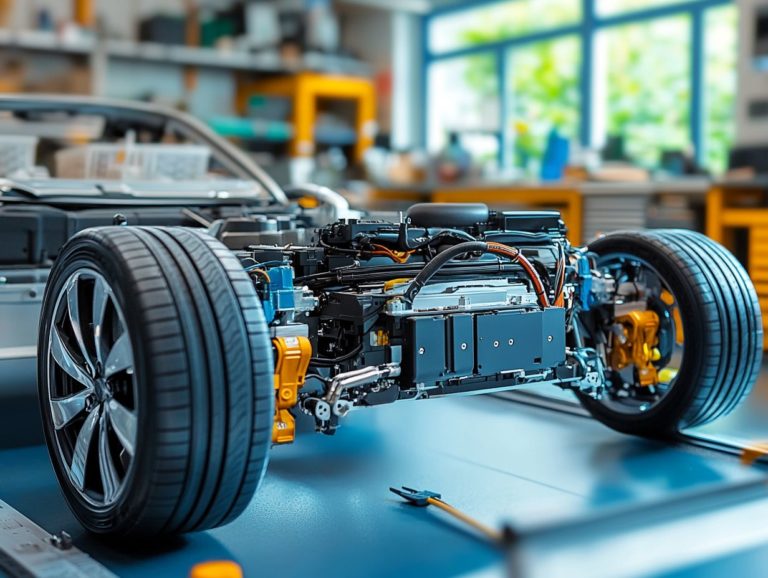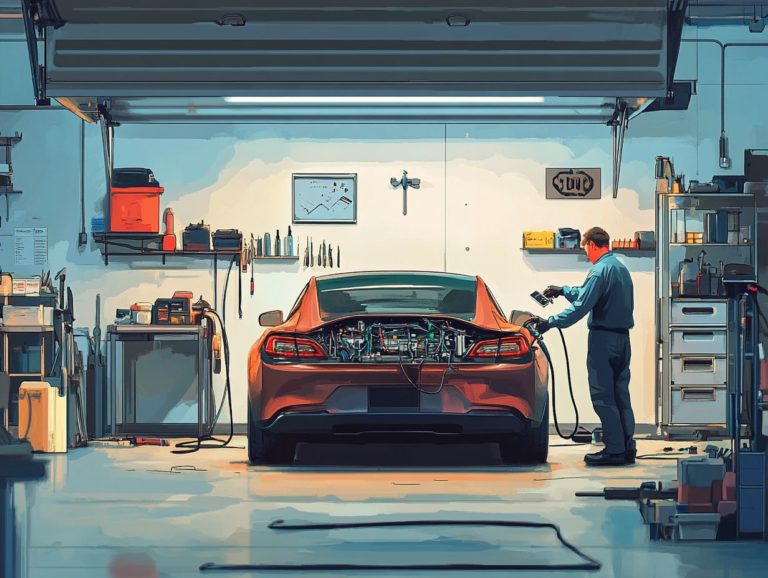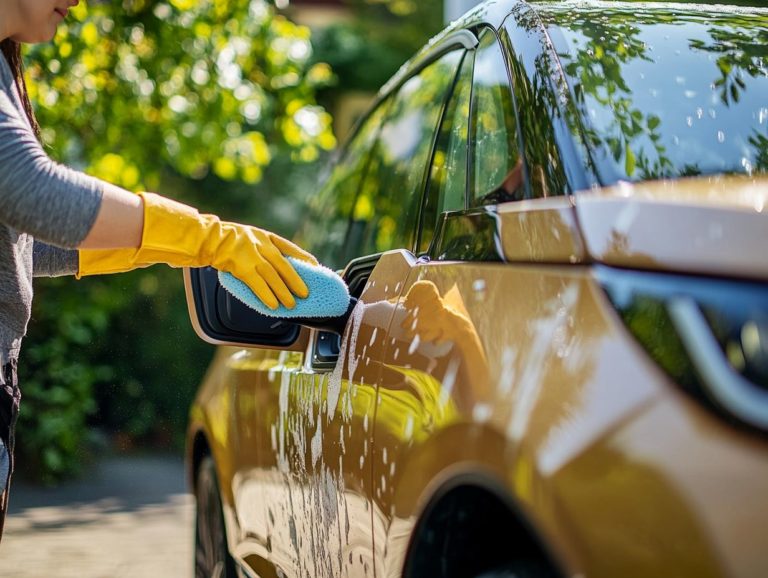ev maintenance myths debunked
As electric vehicles (EVs) surge in popularity, a whirlwind of myths begins to circulate around them. You may find yourself questioning the practicality and efficiency of these innovative cars, and you’re not alone in your skepticism.
This article aims to dispel some of the most common misconceptions about EVs. From concerns regarding maintenance and battery longevity to the availability of charging stations and their environmental impact, we ll address it all.
Get ready to have your questions answered and uncover the truth behind these remarkable electric wonders.
Contents
- Key Takeaways:
- Myth #1: EVs Require More Maintenance than Gas Cars
- Myth #2: EV Batteries Need to be Replaced Frequently
- Myth #3: It’s Difficult to Find Charging Stations
- Myth #4: EVs are Not Suitable for Long-Distance Travel
- Myth #5: EVs are Not Environmentally Friendly
- Frequently Asked Questions
- What are some common myths about EV maintenance?
- Is it true that EVs require less maintenance than traditional cars?
- Do EVs still need regular servicing?
- Are there any special tools or skills required to maintain an EV?
- Is it true that cold weather affects the performance of EVs?
- Are there any environmental benefits to owning an EV when it comes to maintenance?
Key Takeaways:
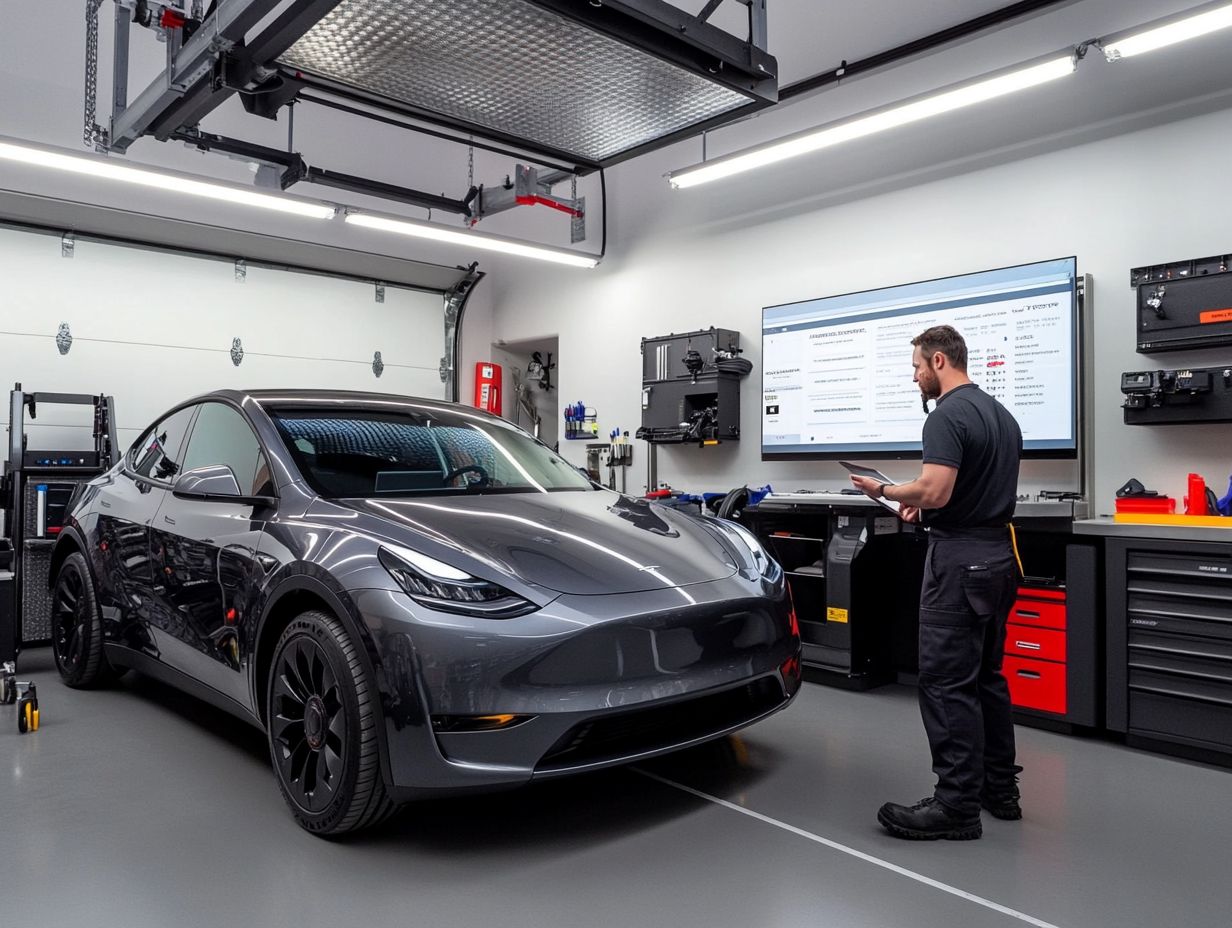
EVs need less maintenance and have fewer moving parts than gas cars. Their batteries last a long time, reducing overall costs. Charging stations for EVs are becoming more widespread, making it easier for drivers to charge their vehicles on the go.
What are EVs and How Do They Work?
Electric vehicles (EVs) represent a groundbreaking shift from traditional gas engine vehicles. They offer a sustainable alternative that addresses the urgent need to cut carbon emissions and reduce reliance on fossil fuels.
Using advanced battery technology, EVs convert electricity from the grid into energy that powers electric motors, propelling your vehicle. Unlike petrol and diesel cars, EVs aim to minimize environmental impacts while maximizing energy efficiency.
With an expanding charging infrastructure and government initiatives phasing out gas engines by 2035, electric mobility is swiftly gaining momentum on UK roads. This allows you to enjoy the advantages of innovative technology.
This transition is supported by components like lithium-ion batteries, a type of battery that stores energy efficiently. These batteries often deliver impressive driving ranges exceeding 200 miles on a single charge.
The low operating costs and significantly reduced maintenance requirements of EVs thanks to fewer moving parts add to their appeal.
The importance of charging infrastructure cannot be overstated. It enables convenient overnight charging at home or quick top-ups at public stations, making long-distance travel not just feasible but enjoyable.
Powering these vehicles with renewable energy sources marks a major step toward a cleaner planet. It highlights the vital role of electric mobility in tackling climate challenges.
Myth #1: EVs Require More Maintenance than Gas Cars
One common misconception is that electric vehicles (EVs) demand more maintenance than traditional gas-powered cars. This leads many to question the actual maintenance costs tied to owning an EV.
Debunking the Myth
When you compare the vehicle lifecycle of electric vehicles to traditional petrol and diesel cars, it becomes clear that EVs often come with lower maintenance needs, thanks to their simpler mechanics.
This simplicity comes from the absence of complex gas engine systems that require oil changes and involve numerous moving parts. For you, this means fewer trips to the mechanic and significant savings on service costs.
As the electric vehicle market evolves, supporting infrastructure and technology are advancing, making ownership even more convenient and cost-effective.
With warranties covering battery performance and advancements in battery longevity, the financial benefits of choosing an electric vehicle are increasingly clear. This allows you to make a sustainable investment throughout the vehicle’s lifetime.
Myth #2: EV Batteries Need to be Replaced Frequently
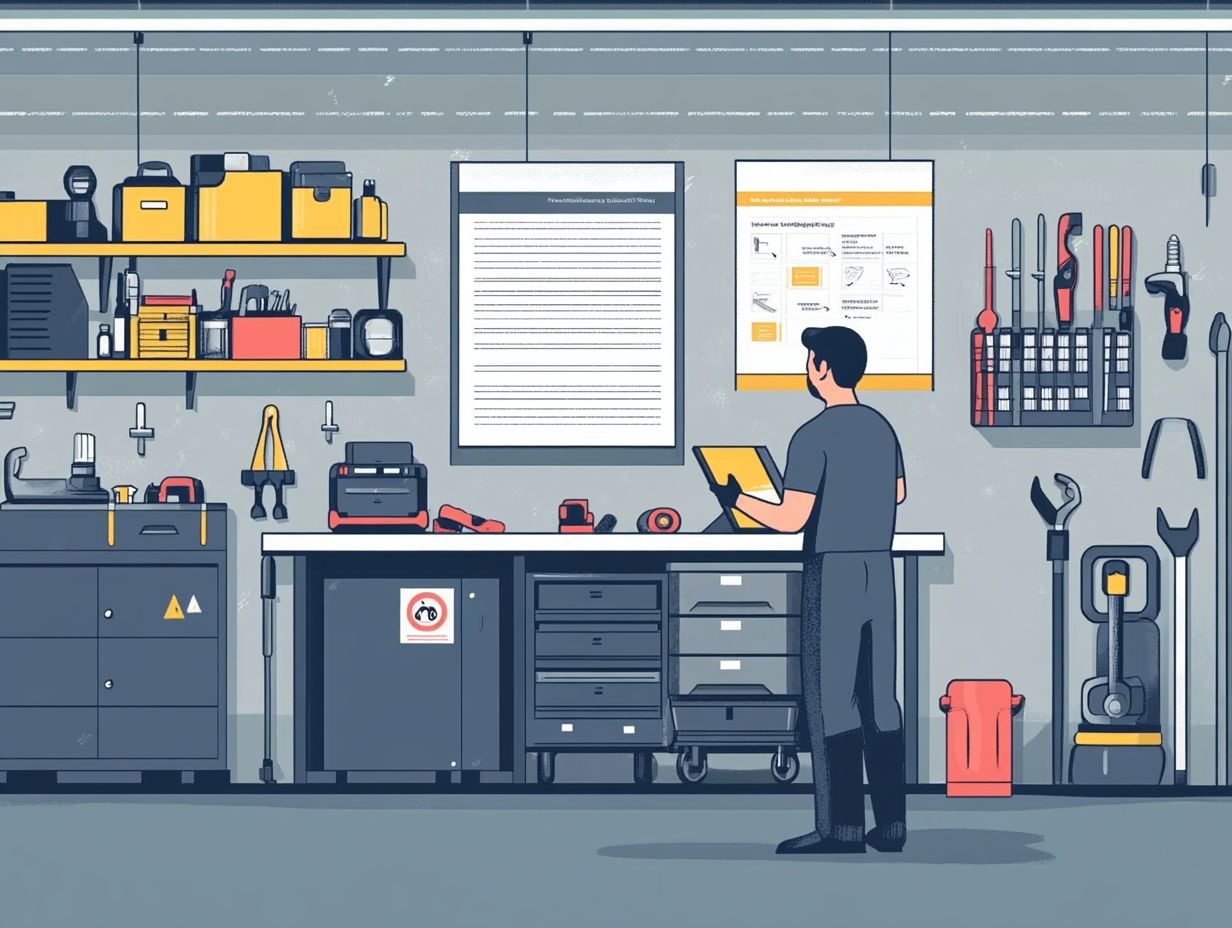
Another prevalent myth is that EV batteries require frequent replacements. This myth may deter potential buyers from viewing EVs as a practical choice.
Don’t miss out on the benefits of EVs! Consider making the switch and join the movement toward a sustainable future.
Debunking the Myth
Advancements in battery technology have dramatically enhanced the lifespan and reliability of EV batteries. The notion of frequent replacements is now a thing of the past.
Innovations such as solid-state batteries use new materials to increase how much energy the battery can hold while reducing unnecessary weight. These breakthroughs not only extend the driving range on a single charge but also improve the manufacturing process, making it more sustainable.
Emissions testing is essential for understanding the environmental impact of electric vehicles throughout their entire lifecycle. By examining various stages from production to end-of-life disposal these evaluations confirm that, contrary to initial concerns, electric vehicles significantly reduce carbon emissions.
This clears up the myth that frequent battery replacements hurt their eco-friendliness.
Myth #3: It’s Difficult to Find Charging Stations
It s easy to think that locating charging stations for electric vehicles (EVs) is a daunting challenge. This perception can hold you back from fully embracing electric mobility.
This misconception stifles your enthusiasm and contributes to a broader negative public opinion about EVs.
Debunking the Myth
Charging stations are becoming increasingly accessible, especially in areas like Greater London and the South West. Government initiatives are aimed at enhancing the charging infrastructure.
Government funding schemes are helping to expand public and private charging points. Partnerships between the government and private companies are driving a nationwide rollout of advanced charging networks.
Renewable energy sources, such as solar and wind, support sustainable electric vehicle (EV) charging efforts, ensuring that these stations are powered by cleaner energy.
As the UK moves toward a greener future, strong policies and innovative energy solutions are creating a more electrified and eco-friendly transportation landscape.
Myth #4: EVs are Not Suitable for Long-Distance Travel
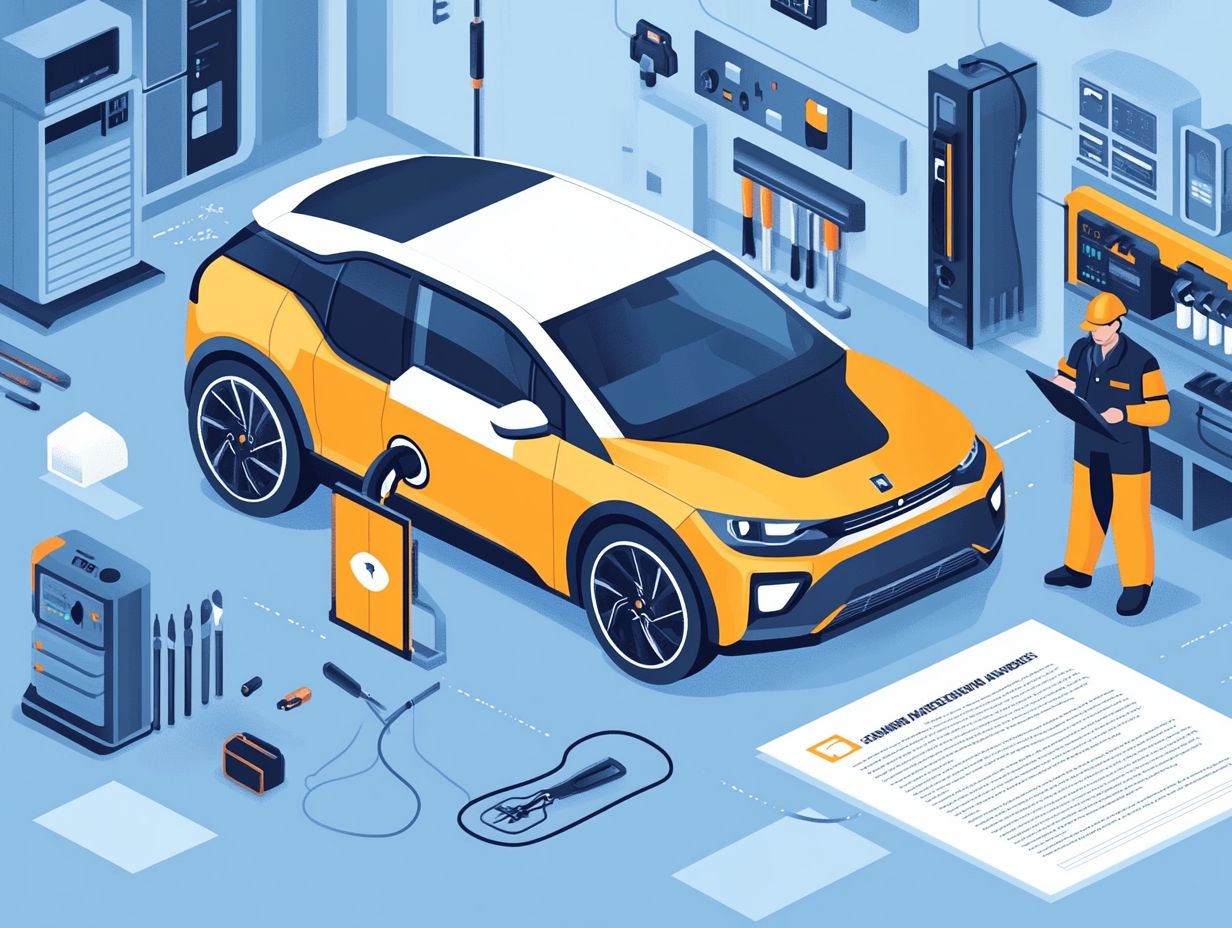
One of the most enduring myths about electric vehicles (EVs) is the belief that they are unsuitable for long-distance travel. This misconception often drives individuals to prefer traditional petrol stations for their journeys due to concerns about limited driving range.
Debunking the Myth
Modern electric vehicles come packed with new technology that improves fuel efficiency and extends your driving range. This makes them ideal companions for long-distance travel.
Take the Tesla Model 3, for instance. It boasts an impressive range of around 350 miles. The Hyundai Kona Electric offers a solid range of 258 miles. Both models prove their capability on extended journeys.
These vehicles cater to your diverse driving needs, whether you’re commuting or planning a weekend getaway. With more charging stations along major highways, your road trips are becoming seamless and accessible.
The growing number of charging stations means you can explore new places with ease and confidence! Embrace the electric revolution and hit the road with excitement.
Myth #5: EVs are Not Environmentally Friendly
Despite the rising allure of electric vehicles (EVs), arguments suggest they aren’t as environmentally friendly as they seem.
Critics often highlight concerns about carbon emissions linked to battery production and the electricity used during their operation.
Debunking the Myth
Research shows that electric vehicles consistently offer a lower carbon footprint compared to petrol and diesel cars. This is especially true when considering the emissions testing results from the automotive industry.
This trend becomes clear as more studies explore the total emissions over their entire use. A recent report from the International Council on Clean Transportation revealed that EVs generate significantly fewer greenhouse gases over their lifespan. This is true even after factoring in the emissions from generating electricity.
The electric vehicle market is evolving with a steadfast commitment to sustainability. Manufacturers are investing heavily in greener technologies and renewable energy sources. This shift boosts the effectiveness of EVs in reducing air pollution and emphasizes the long-term climate advantages of embracing electric mobility.
As more cities implement incentives for electric fleets, reliance on traditional fuels is steadily declining. This marks a significant turning point in the pursuit of cleaner transportation alternatives.
Frequently Asked Questions
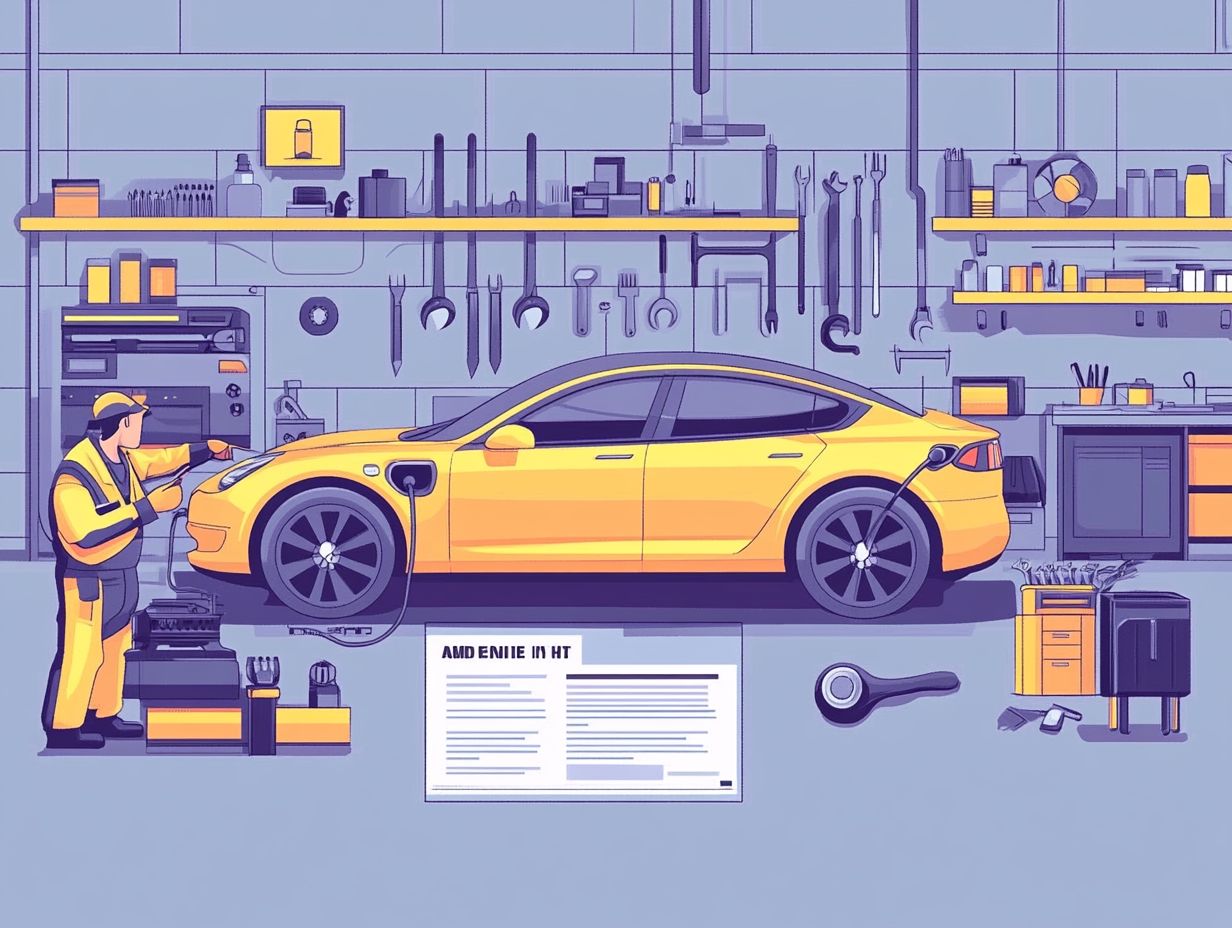
What are some common myths about EV maintenance?
Some common myths about electric vehicles include the belief that EVs require expensive battery replacements, have a shorter lifespan than traditional cars, and are difficult to repair. To learn more about these misconceptions, check out what are the common misconceptions about EVs?
Is it true that EVs require less maintenance than traditional cars?
Yes, it’s true. EVs have fewer moving parts and do not need oil changes or spark plug replacements. This leads to lower maintenance costs.
Do EVs still need regular servicing?
Yes, EVs do need regular servicing, such as tire rotations and brake pad replacements. However, these tasks usually occur less frequently than with traditional cars.
Are there any special tools or skills required to maintain an EV?
No, EVs can be maintained using the same tools and skills as traditional cars. Some specialized repairs may require specific training or equipment.
Is it true that cold weather affects the performance of EVs?
While cold weather can decrease the range of an EV, it does not impact its overall performance. In fact, some EVs have systems that warm the battery to maintain optimal performance in cold conditions.
Are there any environmental benefits to owning an EV when it comes to maintenance?
Yes, EVs produce lower carbon emissions and do not require oil changes, which reduces the environmental impact of maintenance. Many EVs also use recycled or sustainable materials, further minimizing their environmental footprint.

